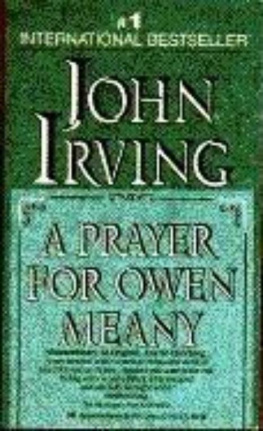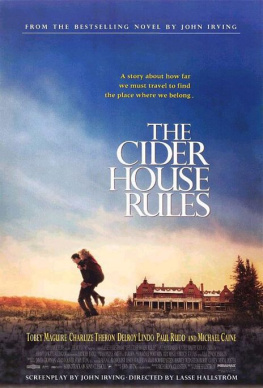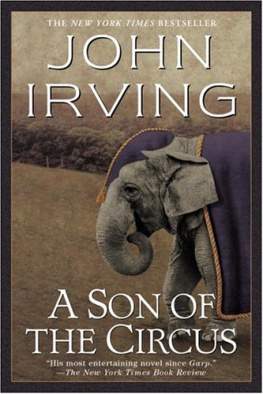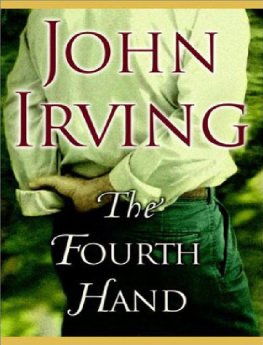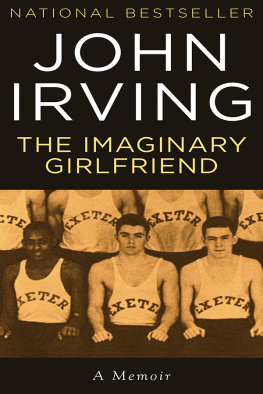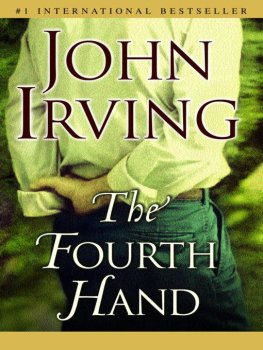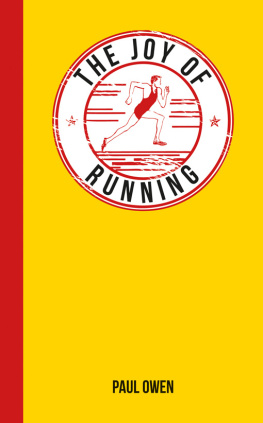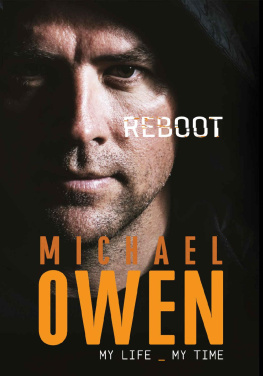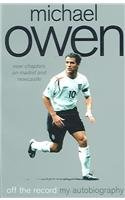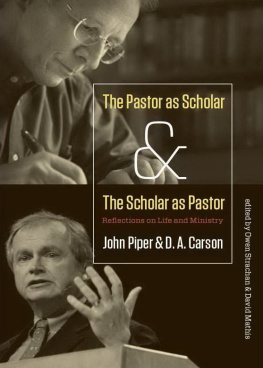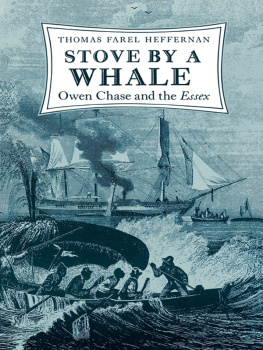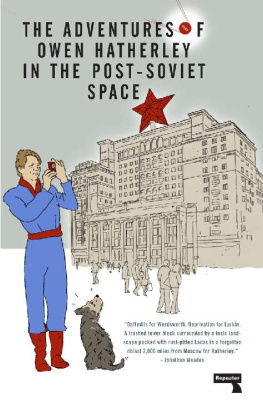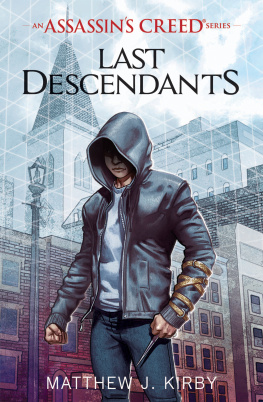John Irving - A Prayer for Owen Meany
Here you can read online John Irving - A Prayer for Owen Meany full text of the book (entire story) in english for free. Download pdf and epub, get meaning, cover and reviews about this ebook. year: 1990, publisher: Black Swan, genre: Non-fiction. Description of the work, (preface) as well as reviews are available. Best literature library LitArk.com created for fans of good reading and offers a wide selection of genres:
Romance novel
Science fiction
Adventure
Detective
Science
History
Home and family
Prose
Art
Politics
Computer
Non-fiction
Religion
Business
Children
Humor
Choose a favorite category and find really read worthwhile books. Enjoy immersion in the world of imagination, feel the emotions of the characters or learn something new for yourself, make an fascinating discovery.
- Book:A Prayer for Owen Meany
- Author:
- Publisher:Black Swan
- Genre:
- Year:1990
- Rating:4 / 5
- Favourites:Add to favourites
- Your mark:
- 80
- 1
- 2
- 3
- 4
- 5
A Prayer for Owen Meany: summary, description and annotation
We offer to read an annotation, description, summary or preface (depends on what the author of the book "A Prayer for Owen Meany" wrote himself). If you haven't found the necessary information about the book — write in the comments, we will try to find it.
A Prayer for Owen Meany — read online for free the complete book (whole text) full work
Below is the text of the book, divided by pages. System saving the place of the last page read, allows you to conveniently read the book "A Prayer for Owen Meany" online for free, without having to search again every time where you left off. Put a bookmark, and you can go to the page where you finished reading at any time.
Font size:
Interval:
Bookmark:
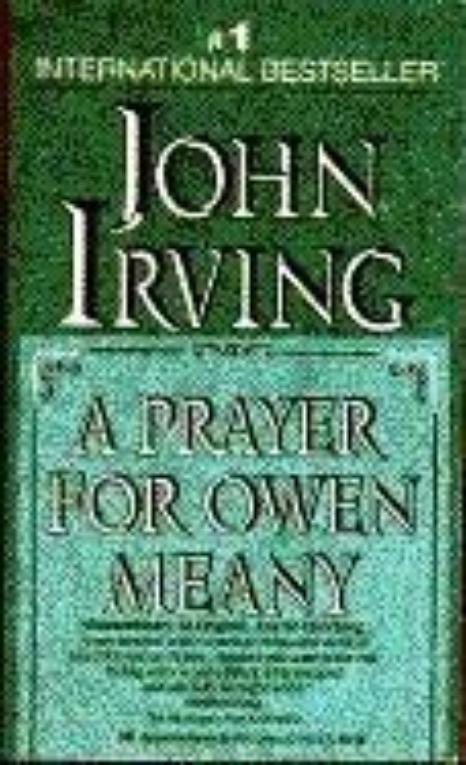
A Prayer
for
Owen Meany
John Irving
TABLE OF CONTENTS
THE FOUL BALL
I AM DOOMED to remember a boy with a wrecked voice-not because of his voice, or because he was the smallest person I ever knew, or even because he was the instrument of my mother's death, but because he is the reason I believe in God; I am a Christian because of Owen Meany. I make no claims to have a life in Christ, or with Christ-and certainly not for Christ, which I've heard some zealots claim. I'm not very sophisticated in my knowledge of the Old Testament, and I've not read the New Testament since my Sunday school days, except for those passages that I hear read aloud to me when I go to church. I'm somewhat more familiar with the passages from the Bible that appear in The Book of Common Prayer; I read my prayer book often, and my Bible only on holy days-the prayer book is so much more orderly.
I've always been a pretty regular churchgoer. I used to be a Congregationalist-I was baptized in the Congregational Church, and after some years of fraternity with Episcopalians (I was confirmed in the Episcopal Church, too), I became rather vague in my religion: in my teens I attended a "non-denominational" church. Then I became an Anglican; the Anglican Church of Canada has been my church-ever since I left the United States, about twenty years ago. Being an Anglican is a lot like being an Episcopalian-so much so that being an Anglican occasionally impresses upon me the suspicion that I have simply become an Episcopalian again. Anyway, I left the Congregationalists and the Episcopalians-and my country once and for all. When I die, I shall attempt to be buried in New Hampshire- alongside my mother-but the Anglican Church will perform the necessary service before my body suffers the indignity of trying to be sneaked through U.S. Customs. My selections from the Order for the Burial of the Dead ate entirely conventional and can be found, in the order that I shall have them read-not sung-in The Book of Common Prayer. Almost everyone I know will be familiar with the passages from John, beginning with"... whosoever liveth and believeth in me shall never die." And then there's "... in my Father's house are many mansions: If it were not so, I would have told you." And I have always appreciated the frankness expressed in that passage from Timothy, the one that goes "...we brought nothing into this world, and it is certain we can carry nothing out." It will be a by-the-book Anglican service, the kind that would make my former fellow Congregationalists fidget in their pews. I am an Anglican now, and I shall die an Anglican. But I skip a Sunday service now and then; I make no claims to be especially pious; I have a church-rummage faith-the kind that needs patching up every weekend. What faith I have I owe to Owen Meany, a boy I grew up with. It is Owen who made me a believer. In Sunday school, we developed a form of entertainment based on abusing Owen Meany, who was so small that not only did his feet not touch the floor when he sat in his chair-his knees did not extend to the edge of his seat; therefore, his legs stuck out straight, like the legs of a doll. It was as if Owen Meany had been born without realistic joints. Owen was so tiny, we loved to pick him up; in truth, we couldn't resist picking him up. We thought it was a miracle: how little he weighed. This was also incongruous because Owen came from a family in the granite business. The Meany Granite Quarry was a big place, the equipment for blasting and cutting the granite slabs was heavy and dangerous-looking; granite itself is such a rough, substantial rock. But the only aura of the granite quarry that clung to Owen was the granular dust, the gray powder that sprang off his clothes whenever we lifted him up. He was the color of a gravestone; light was both absorbed and reflected by his skin, as with a pearl, so that he appeared translucent at times-especially at his temples, where his blue veins showed through his skin (as though, in addition to his extraordinary size, there were other evidence that he was born too soon). His vocal cords had not developed fully, or else his voice had been injured by the rock dust of his family's business. Maybe he had larynx damage, or a destroyed trachea; maybe he'd been hit in the throat by a chunk of granite. To be heard at all, Owen had to shout through his nose. Yet he was dear to us-"a little doll," the girls called him, while he squirmed to get away from them; and from all of us. I don't remember how our game of lifting Owen began. This was Christ Church, the Episcopal Church of Graves-end, New Hampshire. Our Sunday school teacher was a strained, unhappy-looking woman named Mrs. Walker. We thought this name suited her because her method of teaching involved a lot of walking out of class. Mrs. Walker would read us an instructive passage from the Bible. She would then ask us to think seriously about what we had heard-"Silently and seriously, that's how I want you to think!" she would say. "I'm going to leave you alone with your thoughts, now," she would tell us ominously-as if our thoughts were capable of driving us over the edge. "I want you to think very hard," Mrs. Walker would say. Then she'd walk out on us. I think she was a smoker, and she couldn't allow herself to smoke in frontofus. "When I come back," she'd say, "we'll talk about it."
By the time she came back, of course, we'd forgotten everything about whatever it was-because as soon as she left the room, we would fool around with a frenzy. Because being alone with our thoughts was no fun, we would pick up Owen Meany and pass him back and forth, overhead. We managed this while remaining seated in our chairs-that was the challenge of the game. Someone-I forget who started it-would get up, seize Owen, sit back down with him, pass him to the next person, who would pass him on, and so forth. The girls were included in this game; some of the girls were the most enthusiastic about it. Everyone could lift up Owen. We were very careful; we never dropped him. His shirt might become a little rumpled. His necktie was so long, Owen tucked it into his trousers-or else it would have hung to his knees-and his necktie often came untucked; sometimes his change would fall out (in our faces). We always gave him his money back. If he had his baseball cards with him, they, too, would fall out of his pockets. This made him cross because the cards were alphabetized, or ordered under another system-all the infield-ers together, maybe. We didn't know what the system was, but obviously Owen had a system, because when Mrs. Walker came back to the room-when Owen returned to his chair and we passed his nickels and dimes and his baseball cards back to him-he would sit shuffling through the cards with a grim, silent fury. He was not a good baseball player, but he did have a very small strike zone and as a consequence he was often used as a pinch hitter-not because he ever hit the ball with any authority (in fact, he was instructed never to swing at the ball), but because he could be relied upon to earn a walk, a base on balls. In Little League games he resented this exploitation and once refused to come to bat unless he was allowed to swing at the pitches. But there was no bat small enough for him to swing that didn't hurl his tiny body after it-that didn't thump him on the back and knock him out of the batter's box and flat upon the ground. So, after the humiliation of swinging at a few pitches, and missing them, and whacking himself off his feet, Owen Meany selected that other humiliation of standing motionless and crouched at home plate while the pitcher aimed the ball at Owen's strike zone-and missed it, almost every time. Yet Owen loved his baseball cards-and, for some reason, he clearly loved the game of baseball itself, although the game was cruel to him. Opposing pitchers would threaten him. They'd tell him that if he didn't swing at their pitches, they'd hit him with the ball. "Your head's bigger than your strike zone, pal," one pitcher told him. So Owen Meany made his way to first base after being struck by pitches, too. Once on base, he was a star. No one could run the bases like Owen. If our team could stay at bat long enough, Owen Meany could steal home. He was used as a pinch runner in the late innings, too; pinch runner and pinch hitter Meany-pinch walker Meany, we called him. In the field, he was hopeless. He was afraid of the ball; he shut his eyes when it came anywhere near Mm. And if by some miracle he managed to catch it, he couldn't throw it; his hand was too small to get a good grip. But he was no ordinary complainer; if he was self-pitying, his voice was so original in its expression of complaint that he managed to make whining lovable. In Sunday school, when we held Owen up in the air-especially, in the air!-he protested so uniquely. We tortured him, I think, in order to hear his voice; I used to think his voice came from another planet. Now I'm convinced it was a voice not entirely of this world.
Font size:
Interval:
Bookmark:
Similar books «A Prayer for Owen Meany»
Look at similar books to A Prayer for Owen Meany. We have selected literature similar in name and meaning in the hope of providing readers with more options to find new, interesting, not yet read works.
Discussion, reviews of the book A Prayer for Owen Meany and just readers' own opinions. Leave your comments, write what you think about the work, its meaning or the main characters. Specify what exactly you liked and what you didn't like, and why you think so.

